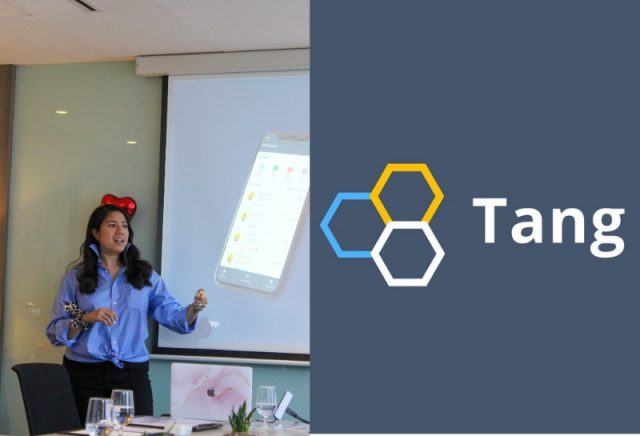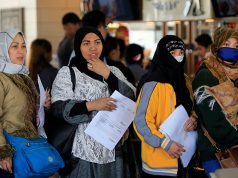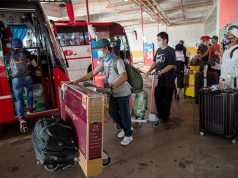A Filipina Harvard graduate launched a digital payment app dedicated to helping overseas Filipinos send money back home.
Rebecca Kersch, a Harvard Kennedy School alumna, formally launched the TANGapp, a mobile remittance app, in the Philippines on February 13.
TANGapp, which is short for “transaction-and-go” application, is a startup business that was incorporated in the United States in April 2020.
It has since earned a reputation as an “international GCash” from the US to the Philippines. It is also likened to US’s Venmo, a mobile payment service overseas.
During TANGapp’s formal launch in the pioneer market, Filipino-Dutsch Kersch, expressed hopes that more Filipinos, both migrant workers and their loved ones, can benefit from her startup’s peer-to-peer digital payment services in the future.
“At TANGapp, we believe that digital mobile payment services can improve for Filipinos. Whether they are one of the 4.5 million Filipinos working in the US or the tens of millions of unbanked in the Philippines, every Filipino deserves access to the ever-growing international digital economy,” Kersch said in a statement.
“That’s why we’ve set out to create more than just a remittance app. One day like today, sending money overseas, paying for groceries, and supporting a cause will be as easy as texting. All on the same easy-to-use mobile app,” she added.
TANGapp currently offers several payment services to users. Migrant families can send money, prepaid load and digital gifts to their loved ones in the Philippines.
The app can now be downloaded on the Google Play Store and other app stores.
View this post on Instagram
TANGapp is also styled the same way as “tanggap,” a Filipino word that means “receive” in English.
Inspiration from Tita Baby, OFWs
During the launch, Kersch shared that her inspiration for her developing TANGapp is her aunt, she affectionately calls “Tita Baby,” as well as her grandparents.
She said that Tita Baby, who is also an OFW, helped raise her and her siblings in the family.
“She’s also like another mother, another ‘nanay’ to me. But she’s a migrant worker. So she’s a cousin of my mother. And she lived and worked outside the Philippines [for] most of her adult life. So she sent home almost everything she earns. And I think this is a story we all know very well,” Kersch said.
Despite her hard work, however, Kersch observed that her aunt has to pay an “exorbitant” rate of around 8% of the funds she had to send money to the country. She also learned that this situation did not improve over time.
This propelled her to think of a solution to address the problem of migrant workers sending money without the high cost of it and the other complex processes that come with it.
“I think it’s a crisis because millions of Filipinos abroad sacrifice a lot and millions receiving things are not increasing in wealth or changing their income levels and it doesn’t necessarily create a better [future] for their children and their next generation,” Kersch said.
She further noted: “I think the system is broken on both sides.”
Moreover, TANGapp was also coincidentally born a few weeks after COVID-19 was declared a pandemic. Many governments, including the Philippines, implemented strict lockdown measures to supposedly curb the transmission of the deadly virus.
View this post on Instagram
At that time, Kersch saw the difficulties of OFWs in the US in sending money to their loved ones back home.
Driven by the goal to help them, she led a small group of people from Harvard to develop the app as the new, accessible remittance option.
Inspiration from her grandparents, family
Kersch grew up in a largely Filipino household. Her roots, however, were mixed.
Born in the Netherlands, Kersch is born to a Dutch-Indonesian father and a Filipina-American mother.
Her family later moved to Washington, D.C. in the US when she was only 11 years old.
Prior to Harvard, she earned her Bachelor of Science in International Business Administration degree at the VU University of Amsterdam, Netherlands.
Even though she grew up outside the country, Kersch’s family tries to visit their relatives in the Philippines every year, thus, still instilling her Filipino roots at heart.
Kersch recalled that her grandparents were also her inspirations for venturing into the TANG app.
“My lolo and lola, they were big inspiration. They were sort of pillars in our family. And they were very much involved even if they have over a dozen grandchildren, they came to every graduation, every birthday as much as they could,” the app’s founder said.
“They also always instill a sense of community in us,” she added.
How the app works
TANGapp’s low remittance rate of 3% is the main advantage of the startup compared to other competitors, Kersch stated.
OFWs or any sender can remit as little as $5 ($1 is equal to P54.85, according to Google’s exchange rate) through the app.
“We have a 3% flat base. We are really focused on…you can send $5 in TANGapp. That doesn’t really exist in remittance companies today,” Kersch said.
This benefit, therefore, helps senders manage and allocate the money they send at times their loved ones really needed it.
“We really wanted to build this international peer-to-peer where you can send $20 three times a day and not cost you more to do that,” Kersch said.
So far, TANGapp has also been successful in raising $1.5 million in pre-seed funding from 17 angel investors in 2021.
Other details about how the app works in digital payment were answered on its site’s frequently asked questions section: FAQ (tangapp.org).










